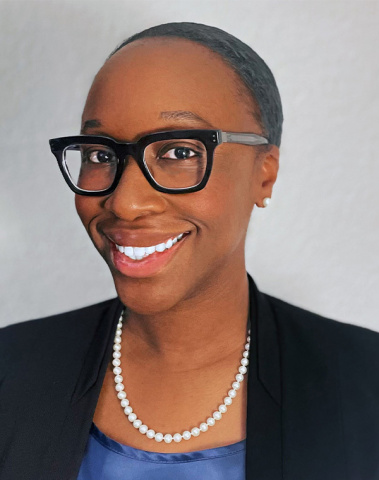Whether working in or outside of government agencies, Francis knows how to effectively frame how people think about a topic or an issue—a skill she learned at the Ford School.

Lishaun Francis
Policy topics: Youth Policy, Mental Health Policy, State Government
First job out of Ford School: Management and Program Analyst in the U.S. Department of Education
Upon graduating from the Ford School, Lishaun Francis (MPP ‘09) headed to DC to work as a Management and Program Analyst at the United States Department of Education (DoE). Although she felt she was making an impact on public education, working at the Pell Grant office left her wanting more.
“I felt like I was on the periphery, like I was on the outside. I was watching things happen and responding to them.”
Francis moved to California to pursue a job at the California Legislative Analyst Office. Here, she dove into the details of health policy and gained a deep understanding of state policy. After a while, however, Francis ran into the same problem she had at the DoE: she wanted to drive the change.
Francis took a job at the California Medical Association where she found a passion for advocacy, but still felt like something was missing. This led her to her current role as a Children’s Mental Health Policy Analyst and Advocate at Children Now, where Francis is now at the forefront of California youth policy making.
“My day-to-day does not look the same day to day,” Francis says. “This year was a legislative-heavy year for us. That meant testifying in front of the state legislature, communicating with the press, and meeting with state administrators. It meant making our position known on the bills that we were interested in.”
Children Now, a research and advocacy group, works to promote children’s interests at the state-level, specifically focusing on policies that affect children of color. The organization focuses on the “whole child,” engaging with policies that impact any aspect of a child’s life.
This year alone, the organization challenged multiple bills that would negatively affect California’s children. Francis points to one that stood out to her.
“Governor Newsom proposed a massive change to a mental health proposition that has been on the books for the past 20 years. It aimed to take care of the visible homelessness issue in California, but it would have done so at the expense of children. We fought like hell to make sure that that didn’t happen. We made enough noise that those protections were put back in for children.”
While making immense strides in California youth policy, Francis says advocacy continues to be a struggle, especially at a time where the policy world is full of so many competing interests.
“I think the most frustrating part of the work for me is getting people to care enough to do something about it. Until policymakers have children of their own, they can’t understand the cost of childcare, or how hard it is to manage work and child rearing,” Francis says. “I need people to care, even if it’s not their personal experience. And that’s been the hardest part.”
Francis credits the Ford School with equipping her with the skills to make the first step towards effective advocacy. “We took a course about framing the debate, and I underestimated exactly how important that is,” Francis says. “The ability to frame how people think about a topic or an issue is probably the most important part of the work because, if not done well, you can lose people almost immediately.”
Looking forward, Francis acknowledges the long road ahead as she continues to advocate for the children of California. “There is always work to be done. It’s literally never a dull moment. I have a list in my notebook of ideas of things that I want to work on, but I strongly believe that the list of ideas will outrun my tenure.”
Francis has one piece of advice for other Ford School students looking to make an impact on communities through advocacy: “Keep asking questions, and get the full picture. Who asked for this? Why do they want it? It is super important if you want to do this work in an equitable way.”
